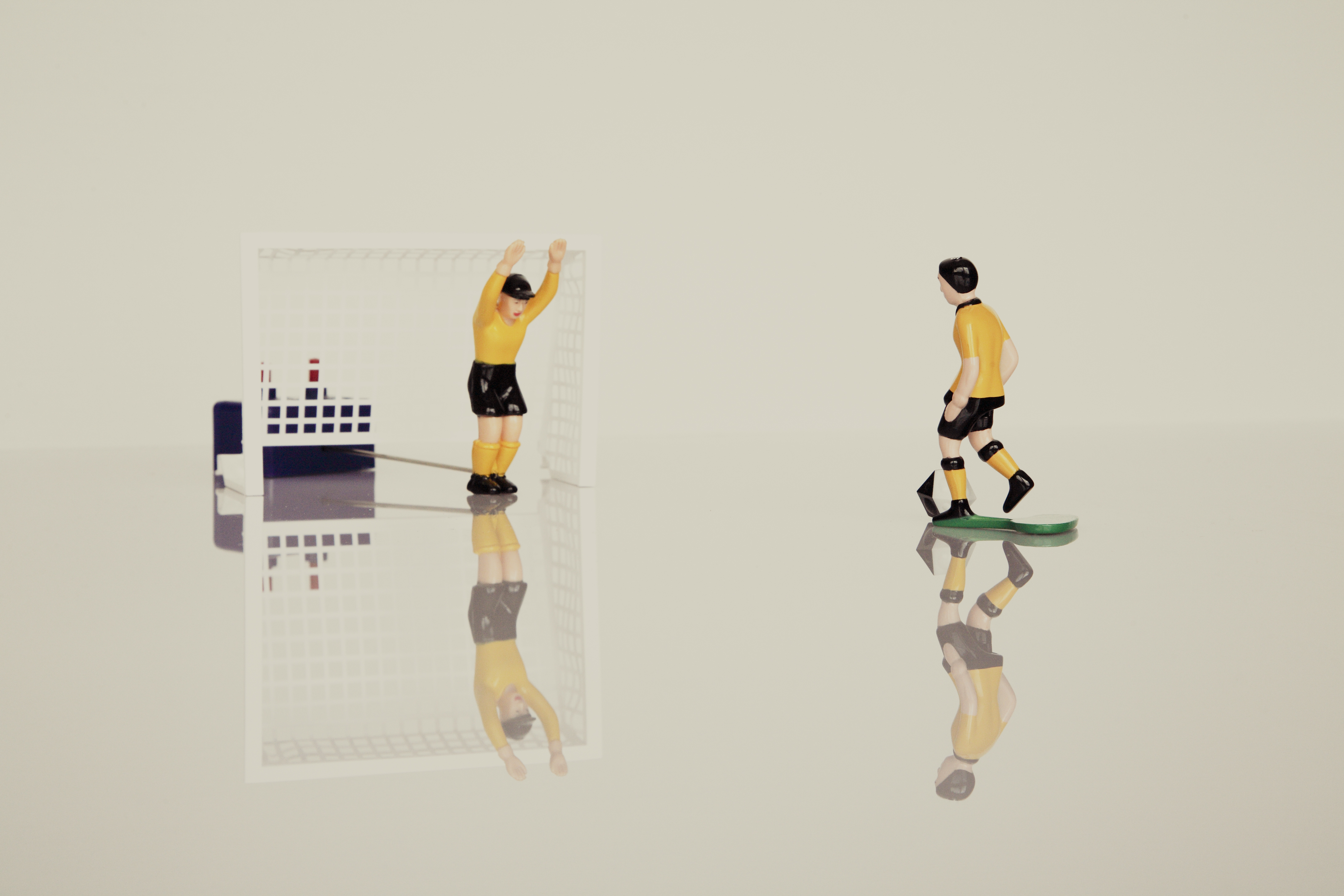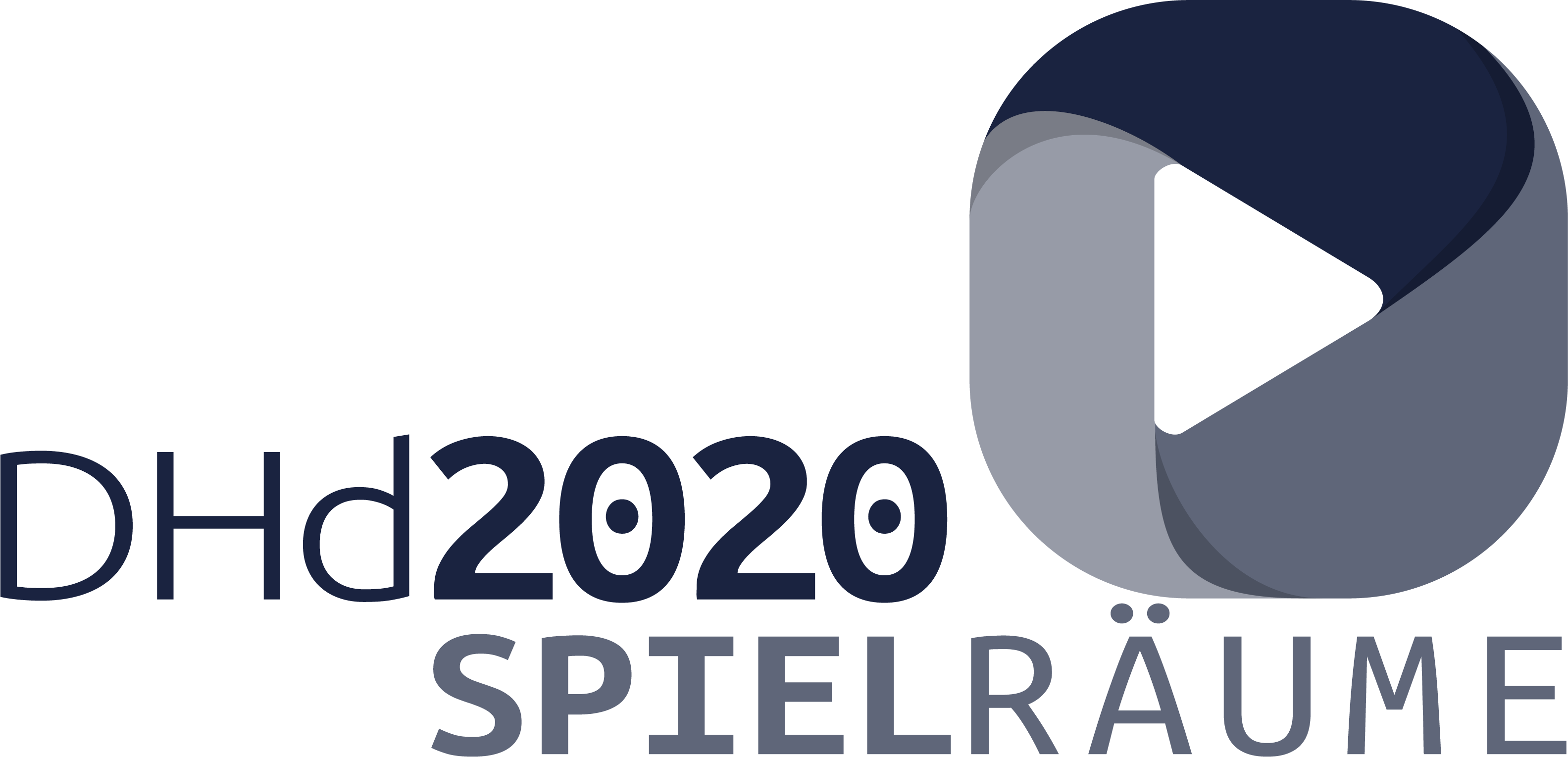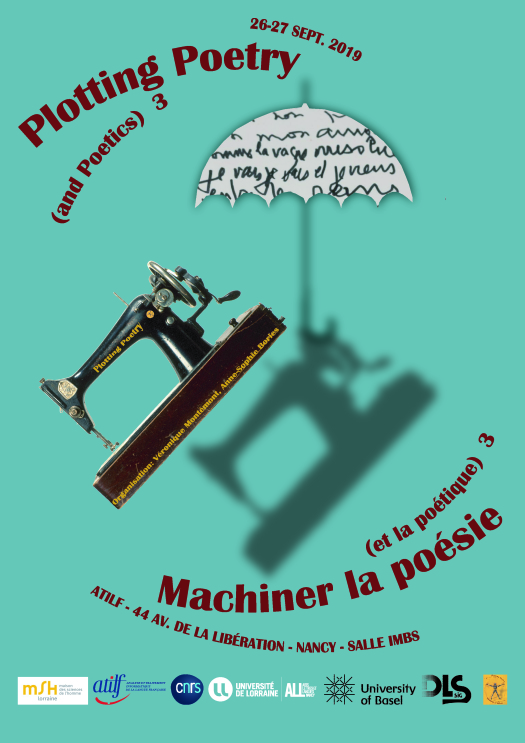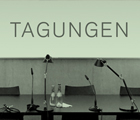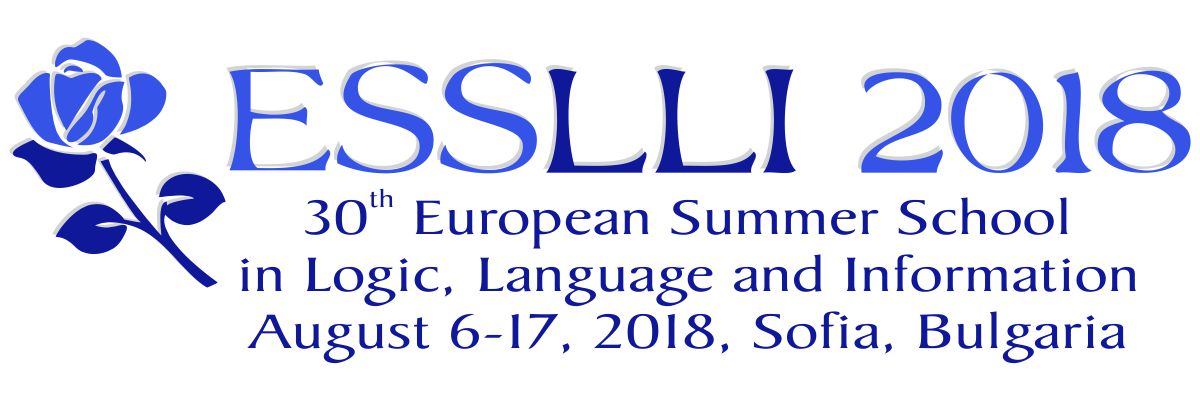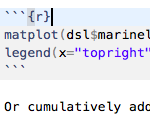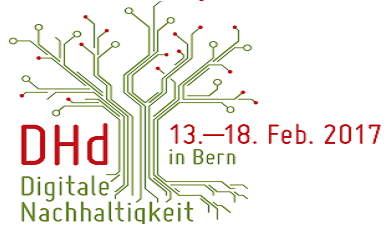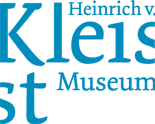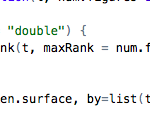Blog
-
Workshop on Computational Drama Analysis: Achievements and Opportunities
This is a CfP for the “Workshop on Computational Drama Analysis: Achievements and Opportunities” which will be held in Cologne on 14/15 September 2022.
-
Tutorial an der Ruhr-Universität Bochum
Am 17.12.2021 geben Benjamin Krautter und Nils Reiter im Rahmen des Projektseminars “Digitale Analyse großer Textkorpora” ein Tutorial zur quantitativen Dramenanalyse. In der dreistündigen Sitzung beschäftigen wir uns mit Konfigurationen sowie aktiver und passiver Präsenz. Technische Grundlage dafür bildet das R-Paket DramaAnalysis, das Tutorial findet online statt.
-
14th October 2021
QuaDramA at CRAC 2021 and CHR2021
In November 2021, QuaDramA will present work at two different events:
-
14. Oktober 2021
QuaDramA auf dem CRAC 2021 Workshop und der CHR2021 Konferenz
Im November 2021 wird QuaDramA auf zwei Veranstaltungen vertreten sein:
-
2nd project phase kick-off: Q:Track
On October 5th the second project phase of QuaDramA has started under the name Q:Track. Supported by the DFG priority program Computational Literary Studies, we will focus our research on the character knowledge of social relations in dramatic worlds. “We” is our previous team and our new team member Melanie Andresen. Four hours were enough to distribute tasks for 3 years (at least!).
- Work packages distributed - check!
- First text selection - check!
- Cooperation partners - check!
- Worsphop planning - check!
- Special issue planning - check!
- Group photo with mask - Oh crap…
-
Kick-off der zweiten Projektphase: Q:Track
Am 5.Oktober hat die zweite Projektphase von QuaDramA unter dem Namen Q:Track begonnen. Gefördert vom DFG-Schwerpunktprogramms Computational Literary Studies werden wir in der bisherigen Besetzung und unserem neuen Team-Mitglied Melanie Andresen das Figurenwissen über soziale Relationen in dramatischen Welten ins Zentrum unserer Forschung stellen. Vier Stunden haben gereicht, um Aufgaben für 3 Jahre (mindestens!) zu verteilen.
- Arbeitspakete verteilt - check!
- Erste Textauswahl - check!
- Kooperationsparter - check!
- Worsphop-Planung - check!
- Special Issue-Planung - check!
- Gruppenfoto mit Maske - Oh Mist…
-
As of August 1st, our team includes a new member: Melanie Andresen joins the computational linguistics part of QuaDramA/Q:TRACK as a Post-Doc for three years. Her research focuses on corpus linguistics and the use of syntactic annotations.
-
Mit dem 1. August ist unser Team wieder ein Stück größer geworden: Melanie Andresen verstärkt die computerlinguistische Seite von QuaDramA bzw. Q:TRACK für drei Jahre als Post-Doc. Ihre Forschungsschwerpunkte liegen in der Korpuslinguistik und der Nutzung syntaktischer Annotationen.
-
Release of new corpus: GerDraCor-Coref
We are exited to announce the release of a new corpus called GerDraCor-Coref! The corpus comprises of over 30 dramatic texts (both full texts and single acts), coming from GerDraCor and manual coreference annotations on these texts. With this corpus, we aim to further study the relationship of coreference and dramatic texts and the way dramatic characters refer to each other. GerDraCor-Coref is available on GitHub. A publication describing the corpus and performing different analyses on the data has been published at the 2020 LREC conference.
-
Korpusveröffentlichung: GerDraCor-Coref
Wir freuen uns, die Veröffentlichung eines neuen Korpus verkünden zu können. Das Korpus trägt den Namen GerDraCor-Coref. Es besteht aus etwas mehr als 30 Texten (Volltexte und einzelne Akte) aus dem GerDraCor, sowie manuellen Koreferenzannotationen auf diesen Texten. Mithilfe des Korpus untersuchen wir das Verhältnis von Koreferenz und dramatischen Texten, sowie die Art und Weise wie Figuren aufeinander Bezug nehmen. GerDraCor-Coref ist auf GitHub verfügbar. Eine Publikation, die das Korpus sowie verschiedene Analysen auf den Daten beschreibt, ist in den Proceedings zur LREC 2020 erschienen.
-
27th February 2020
QuaDramA at the 9th Hildesheim-Göttingen-Workshop on DH and CL
QuaDramA is presenting at the 9th Hildesheim-Göttingen-Workshop on DH and CL, which is taking place on the 26th and 27th February 2020 at Göttingen. Benjamin Krautter and Janis Pagel are giving a talk on categorizing and identifying character types, taking place on Thursday, February 27, 2020 at 09:10 am.
-
27. Februar 2020
QuaDramA auf dem 9. Hildesheim-Göttingen-Workshop on DH and CL
QuaDramA ist auf dem 9th Hildesheim-Göttingen-Workshop on DH and CL, vertreten, der am 26. and 27. Februar 2020 in Göttingen stattfindet. Benjamin Krautter und Janis Pagel präsentieren Arbeit zur Kategorisierung und Identifikation von Figurentypen: Donnerstag, den 27. Februar 2020 um 09:10.
-
17. Januar 2020
Wie in den letzten Jahren wird QuaDramA auch auf der diesjährigen DHd-Konferenz vertreten sein. Die QuaDramA-Vorträge finden statt am Mittwoch, 04.03., 14:00, in der Session V9: Dramenanalyse. In den drei Vorträgen werden inhaltliche und methodische Ergebnisse aus unserem Projekt vorgestellt.
-
7. Januar 2020
QuaDramA Tutorial im Forschungsoberseminar Literaturwissenschaft und Linguistik
Am 07.01.2020 gibt Nils Reiter im Rahmen des Forschungsoberseminars Literaturwissenschaft und Linguistik an der Universität Tübingen eine praktische Einführung in die quantitative Dramenanalyse. Dabei wird das DramaAnalysis-Paket verwendet. Vorkenntnisse im Programmieren o.ä. sind nicht nötig, sondern werden ebenfalls (in Grenzen) vermittelt.
-
26th September 2019
QuaDramA at Plotting Poetry 2019
QuaDramA is participating in the Plotting Poetry Conference 2019, which will be held on the 26th and 27th of September 2019 in Nancy, France. Benjamin Krautter and Janis Pagel are giving a talk with the title Identifying Character Types in German Drama on Friday, September 27, 2019 at 11:30 am.
-
26. September 2019
QuaDramA auf der Plotting Poetry Konferenz 2019
QuaDramA nimmt an der Plotting Poetry Konferenz 2019 teil, die am 26. und 27. September 2019 in Nancy, Frankreich stattfinden wird. Benjamin Krautter und Janis Pagel halten einen Vortrag mit dem Title Identifying Character Types in German Drama am Freitag, den 27. September 2019 um 11:30 Uhr.
-
QuaDramA: Tracking Character Knowledge (Q:TRACK)
We’re pleased to announce that QuaDramA will receive additional funding soon. In this extension called Q:TRACK, we will investigate knowledge about social relations in drama, focusing on family relations. The core idea is to track the distribution and dissemination of social knowledge by detecting the knowledge characters have, acquire and share during the course of dramatic action. In order to accomplish this, Q:TRACK combines methods from computational linguistics and digital humanities with theoretical and historical expertise of literary studies. The project builds on the research we have done in QuaDramA so far.
-
QuaDramA: Tracking Character Knowledge (Q:TRACK)
Im Laufe des Sommers haben wir die gute Nachricht erhalten, dass QuaDramA Teil einer weiteren Förderlinie sein wird. In dem neuen Projekt (Q:TRACK) untersuchen wir Figurenwissen über soziale Beziehungen im Drama, wobei wir zunächst vor allem Familienbeziehungen in den Blick nehmen. Die Kernidee des Projektes ist es, das vorhandene, erfahrene und geteilte Wissen einer Figur über den Handlungsverlauf zu erfassen. Dazu verwenden wir, wie schon in QuaDramA, Methoden aus den Digital Humanities und der Computerlinguistik, die wir mit dramentheoretischem und -historischem Wissen aus der Literaturwissenschaft verbinden.
-
18th July 2019
We’re happy to announce that our R-Package on quantitative drama analysis, surprisingly called “DramaAnalysis”, is now available on the Comprehensive R Archive Network, CRAN. This makes the installation of the package a lot easier, because binary versions can be installed directly. Our R package assembles a number of reasonably documented functions that we find useful for drama analysis, with a focus on analysing the character speech. By providing an R package, we make experiments on textual drama data simpler and faster, in particular for literary scholars with limited programming experience. Still, as we do not provide a graphical user interface (cf. Reiter et al., 2015), some level of programming is required.
-
30. April 2019
Ein explorativer Zugang zu Gesundheit in literarischen Texten
Am 30.04.2019 hat Nils Reiter im Rahmen der hermA-Ringvorlesung “Gesundheit verstehen – Digital Humanities im Dialog” einen Vortrag zur quantitativen Dramenanalyse gehalten, mit Fokus auf das Thema Gesundheit.
-
9. März 2019
Mit dem Titel Schillers Feste der Rhetorik findet vom 20. bis zum 22. März die nunmehr dritte von drei internationalen Schiller-Konferenzen der Deutschen Schillergesellschaft statt. Wie der Titel bereits anzeigt, widmet sich die Konferenz dem Rhetorischen bei Schiller - sowohl in seinen literarischen als auch seinen philosophischen Schriften. Auch QuaDramA wird mit einem Beitrag von Marcus Willand und Benjamin Krautter vertreten sein. Ihr Vortrag Vermessene Figuren: Karl und Franz Moor im quantitativen Vergleich soll poetologische Aussagen zu den Dramenfiguren der Räuber quantitativ nachzeichnen. Der Vortrag findet am 21. März ab 16:30 Uhr statt.
-
9th March 2019
Once again, QuaDramA is present at the DHd, held in Mainz and Frankfurt. Benjamin Krautter and Janis Pagel will present work on the classification of eponymous characters. The talk will take place at a session with the title Analyse bei Dramen und Romanen (Analysis on dramas and novels), on Thursday, March 28, at 9 a.m. to 10.30 a.m.
-
9. März 2019
QuaDramA ist auch in diesem Jahr mit einem Beitrag auf der DHd vertreten, die in Mainz und Frankfurt stattfindet. Benjamin Krautter und Janis Pagel präsentieren eine Arbeit zur Klassifikation von Titelfiguren. Der Vortrag findet in der Session Analyse bei Dramen und Romanen, am Donnerstag, den 28. März von 9:00 bis 10:30 statt.
-
8th March 2019
We are happy to announce that we will give a tutorial on quantitative drama analysis as part of the 2nd Heidelberg Computational Humanities Summer School. The tutorial will take place on Monday afternoon (July 15) and is held by the entire QuaDramA team. We will give a brief introduction into R and RStudio, but the main part will be a hands-on session using tools we develop(ed) within our project.
This post will be updated with material, slides etc. -
12th December 2018
Detecting Protagonists and Title Figures in Plays
In a recent paper1, we investigated how protagonists and title figures can be detected in German plays and which features are important for a machine learning model in order to conduct the classification. This post can be seen as a supplement to this paper.
-
The paper is orginally written in German and got translated into English by the publisher. ↩
-
-
12. Dezember 2018
Erkennung von Protagonisten und Titelfiguren in Dramen
In einem kürzlich erschienenen Artikel haben wir untersucht, inwieweit Protagonisten und Titelfiguren in deutschsprachigen Dramen automatisch erkannt werden können und welche Features einem Machine-Learning-Modell helfen, diese Klassifikation vorzunehmen. Dieser Post kann als Ergänzung zum Artikel gesehen werden.
-
5th December 2018
QuaDramA will be present at the first conference of the European Association for Digital Humanities (EADH). The conference takes place December 7-9, in Galway, Ireland. In total, three presentations by persons involved in QuaDramA are planned.
-
6th August 2018
QuaDramA is participating in the annDH 2018 workshop, which is held as part of ESSLLI 2018 in Sofia, Bulgaria. Janis Pagel presents a paper with the title A Unified Text Annotation Workflow for Diverse Goals.
-
6. August 2018
QuaDramA nimmt am annDH 2018 Workshop teil, der Teil der ESSLLI 2018 in Sofia, Bulgarien ist. Janis Pagel stellt ein Paper mit dem Titel A Unified Text Annotation Workflow for Diverse Goals vor.
-
On Monday, June 18, we will give a tutorial about the DramaAnalysis R package for students at Heidelberg university. The slides can be accessed here.
-
6th June 2018
QuaDramA will be part of the international Digital Humanities conference which takes place in Mexico-City from June 25 to June 29. Benjamin Krautter’s submission got accepted and will be presented as a talk in session LP-12: Quantitative Approaches to Literature on Thursday, June 28, 14:00-15:30 p.m. See below for a short summary.
-
6. Juni 2018
QuaDramA auf der DH 2018 in Mexiko
QuaDramA ist dieses Jahr auf der internationalen Digital Humanities Konferenz in Mexiko dabei. Benjamin Krautter trägt in der Session LP-12: Quantitative Approaches to Literature vor, die am 28. Juni von 14:00 bis 15:30 stattfindet.
-
19th April 2018
Annotating Coreference Chains (Part 3)
We have recently started to annotate coreference chains in dramatic texts. In this loose series of blog posts, we will discuss interesting findings and examples. This post revisits the annotation tool question – again.
-
20th December 2017
Annotating Coreference Chains (Part 2)
We have recently started to annotate coreference chains in dramatic texts. In this loose series of blog posts, we will discuss interesting findings and examples. This post revisits the annotation tool question.
-
15th December 2017
QuaDramA will be part of the German-speaking DH conference DHd, which takes place in Cologne in Feb/March 2018. Benjamin Krautter’s submission got accepted, and will be presented as a talk in session 4A (digital literary studies) on Thursday, March 1, 9-10:30 a.m. See below for a short summary.
-
15. Dezember 2017
Auch dieses Jahr ist QuaDramA auf der DHd dabei, diesmal mit einem Vortrag von Benjamin Krautter. Der Vortrag findet im Rahmen der Session 4A (Digitale Literaturwissenschaft), am Donnerstag, 1. März von 9:00 bis 10:30 statt. Siehe unten für eine kurze Zusammenfassung.
-
8th December 2017
We have just released a new version of our R package for the quantitative analysis of plays, and want to highlight a few changes here. In QuaDramA, the R package is used for data analysis, after natural language processing has taken place. The package therefore relies on pre-processed corpora.
-
Annotating Coreference Chains (Part 1)
We have recently started to annotate coreference chains in dramatic texts. In this loose series of blog posts, we will discuss interesting findings and examples. The first post covers some background and technical setup.
-
Im Hochschulmagazin der Uni Stuttgart ist ein Porträt über unser Projekt erschienen.
-
As of May 1st, we are happy to welcome Benjamin Krautter in our project. He is employed on the PhD position in literary studies and will be with us for the next three years. His research focus lies on stilometry and sentiment analysis of dramatic figures with respect to catharsis.
-
Wir freuen uns, seit dem 1. Mai Benjamin Krautter im Team begrüßen zu dürfen. Er besetzt die Doktorandenstelle mit Schwerpunkt Literaturwissenschaft und wird uns nun drei Jahre begleiten. Sein Forschungsschwerpunkt liegt auf stilomentrischen und Sentiment-Analysen dramatischer Figuren mit Blick auf das Katharsis-Konzept.
-
28th April 2017
Analysing Dramatic Figure Speech with R, Part 2
So far, we loaded dramatic texts into R with the help of a web service that converted from UIMA XMI files into CoNLL-like CSV files. Now that we have released version 0.4.1 of our DramaAnalysis R package, this is no longer necessary. Instead, we have integrated the needed Java code directly into the R package. This makes, we hope, using the R package much easier.
-
We are looking for candidates for a PhD position, to work in the interdisciplinary research project QuaDramA: Quantitative Drama Analytics, funded by Volkswagen Foundation and soon starting at University of Stuttgart.
-
1 Doktorandenstelle in der Computerlinguistik
Im Rahmen des von der VW-Stiftung geförderten Mixed-Methods-Projekts QuaDramA: Quantitative Drama Analytics ist eine Doktorandenstelle am Institut für Maschinelle Sprachverarbeitung, Universität Stuttgart zu besetzen.
-
19th January 2017
You are most likely here, because you read our article “Poetologischer Anspruch und dramatische Wirklichkeit: Indirekte Operationalisierung in der digitalen Dramenanalyse Shakespeares natürliche Figuren im deutschen Drama des 18. Jahrhunderts”. We promised you a detailed guide to reproduce our NLP-preprocessing with DramaNLP.
-
19. Januar 2017
QuaDramA auf der DHd 2017 (Update: Slides)
Zusammen mit Frank Fischer, Nanette Rißler-Pipka, Christof Schöch und Peer Trilcke haben wir das große Vergnügen während der 2017er Jahreskonferenz Digital Humanities im deutschsprachigen Raum im Panel Aktuelle Herausforderungen der Digitalen Dramananalyse einen Vortrag zu halten und zu diskutieren.
-
We are looking for two candidates for PhD positions, to work in the interdisciplinary research project QuaDramA: Quantitative Drama Analytics, funded by Volkswagen Foundation and soon starting at University of Stuttgart.
-
Stellenausschreibung für 2 Doktorand_innen
Im Rahmen des von der VW-Stiftung geförderten Mixed-Methods-Projekts QuaDramA: Quantitative Drama Analytics sind an der Universität Stuttgart zwei Stellen für maximal drei Jahre zu besetzen.
-
QuaDramA funded by Volkswagen Foundation
We are happy to announce that QuaDramA will soon be funded by the Volkswagen Foundation, as part of the funding initiative on Mixed Methods in the Humanities.
-
QuaDramA gefördert durch VolkswagenStiftung
Hiermit können wir die freudige Mitteilung machen, dass QuaDramA nun von der VolkswagenStiftung gefördert wird.
-
21st October 2016
Analysing Dramatic Figure Speech with R, Part 1
This guide describes how to analyse dramatic figure speech with R, using our linguistic preprocessing tools. It is written as a step-by-step guide and uses the (German) dramatic texts Romeo und Julia and Emilia Galotti as examples.
-
Eingeladener Vortrag am 07.10.2016 im Kleist-Museum, Frankfurt (Oder), im Rahmen des wissenschaftlichen Kolloquiums während der Kleist-Festtage 2016. Wir untersuchen dramatische Figuren auf der Mikroebene und Gattungszuschreibungen auf der Makroebene.
-
2nd October 2016
This post gives an overview of the current state of the technology we are using and how we plan to proceed in the future. All programs, scripts and components are available on our github page.
-
1st October 2016
This is a test.
